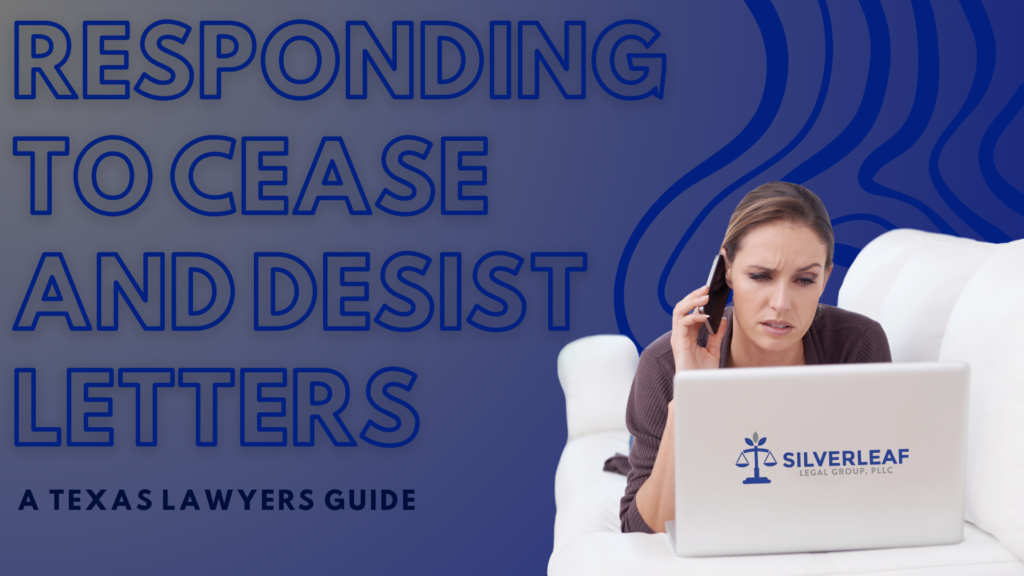Cease and desist letters, often the first step in legal disputes, can be intimidating and confusing for anyone on the receiving end. In Texas, understanding how to respond to these letters is crucial to protecting your rights and interests. As an experienced estate attorney with nearly two decades of practice, I’ve seen my fair share of cease and desist letters and helped clients navigate this complex terrain. In this comprehensive guide, we’ll delve into the world of responding to cease and desist letters, offering valuable insights and strategies to help you effectively address these legal communications.
Understanding the Cease and Desist Letter
A cease and desist letter is a written communication sent by an individual or entity claiming that another party is engaging in unlawful or harmful behavior, and they demand the recipient stop the alleged actions immediately. These letters can cover various issues, including intellectual property disputes, contract breaches, harassment claims, and more.
The Importance of a Thoughtful Response
Upon receiving a cease and desist letter, your immediate reaction might be panic or anger. However, it is crucial to approach this situation with a clear and level head. A well-considered response can make a significant difference in how the matter progresses.
Key Steps in Responding
- Consult with an Attorney: Before crafting a response, consult with an experienced attorney. They can help you understand the claims made in the letter and advise you on the best course of action.
- Gather Information: Collect all relevant documents, contracts, communications, or evidence related to the issue. Having a complete picture of the situation is essential.
- Review the Letter: Carefully analyze the cease and desist letter to identify the specific claims being made, the legal basis for these claims, and the remedies sought by the sender.
- Craft a Response: With your attorney’s guidance, compose a professional and respectful response. Address each claim made in the letter, providing your perspective and any evidence supporting your position.
- Negotiation or Resolution: Depending on the circumstances, you may wish to propose a resolution or negotiate with the sender to avoid further legal action. Your attorney can assist in these discussions.
- Prepare for Legal Action: If negotiations fail or the matter escalates, be prepared to defend your rights in court. Your attorney will help you navigate this process.
Conclusion
Receiving a cease and desist letter in Texas can be stressful, but it is essential to respond thoughtfully and strategically. Consulting with an experienced attorney, gathering information, and crafting a well-reasoned response are critical steps in addressing these legal communications effectively. Remember that each case is unique, and seeking legal guidance is the best way to protect your rights and interests when responding to cease and desist letters in the Lone Star State.



